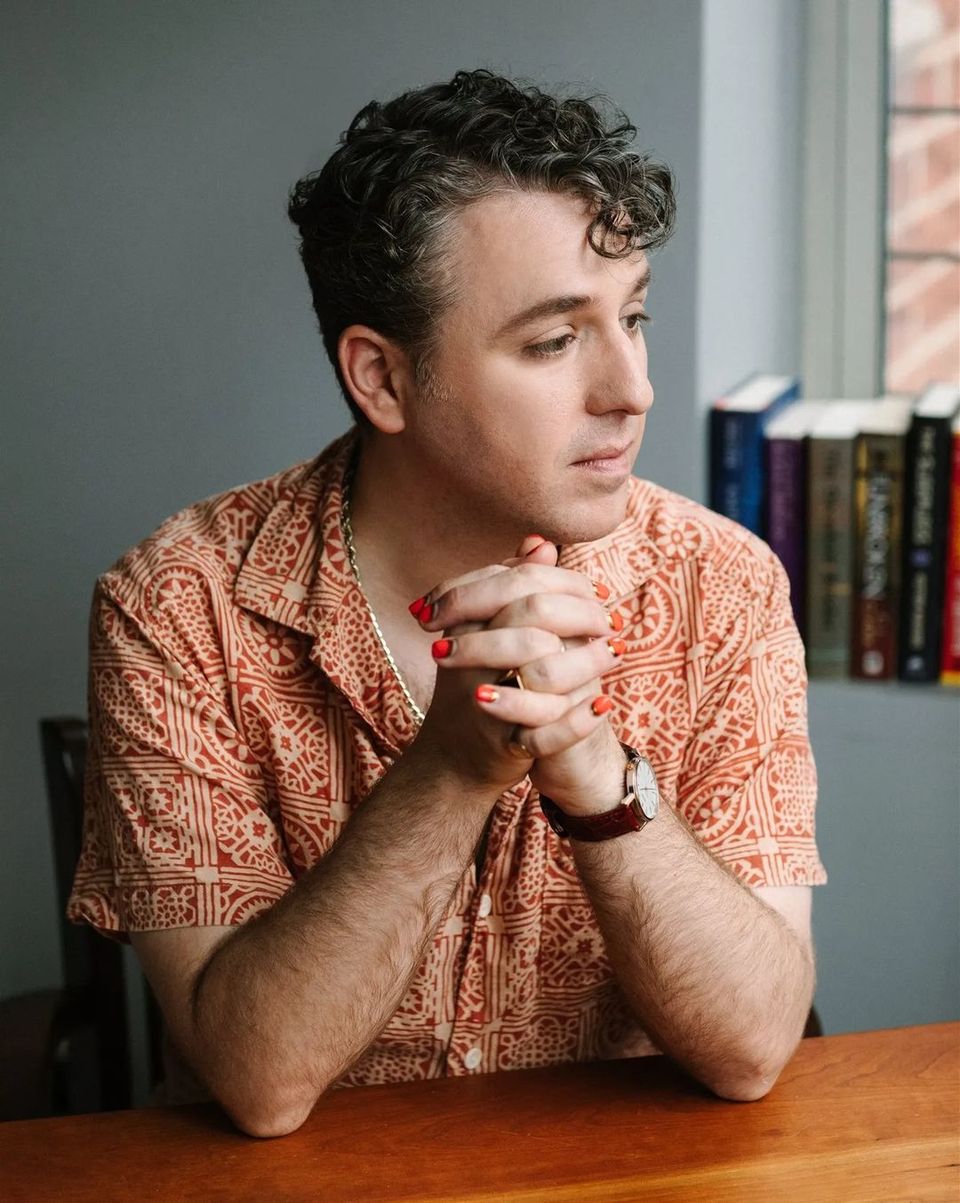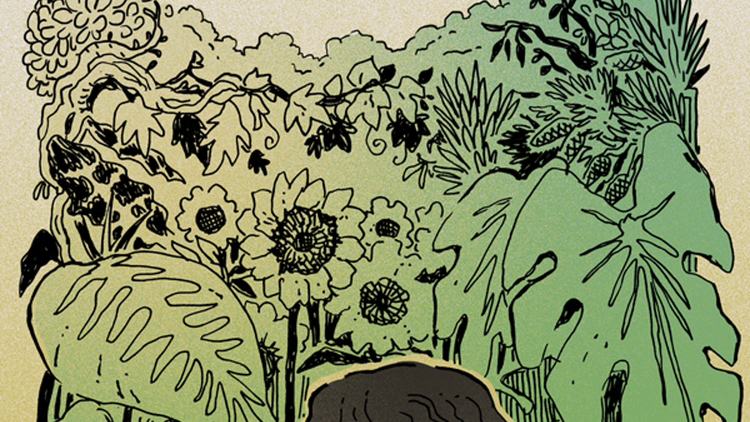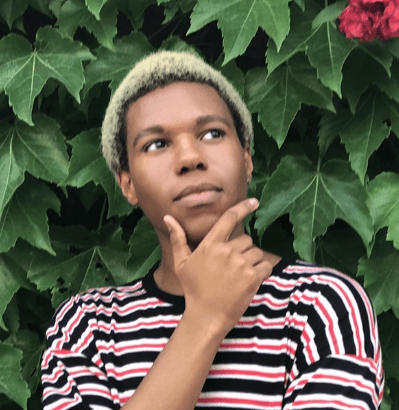On Becoming the Queer Jewish Monster I Was Destined to Be

Elijah Kinch Spector is a writer, dandy, and rootless cosmopolitan from the Bay Area who now lives in Brooklyn. His debut novel, Kalyna the Soothsayer, is available from Erewhon Books.
Readers are advised that this fascinating dive into the overlapping histories of queerness, Jewishness, and monstrosity contains frank discussion of historical and contemporary antisemitism.
Initially, I picked up Leah DeVun’s The Shape of Sex: Nonbinary Gender from Genesis to the Renaissance because I hoped it would help me write nonbinary characters in a historical-ish fantasy setting. I knew that the concept of a clearly divided gender binary was modern, culturally specific, and entirely incorrect, but I wanted to learn about a few in-depth historical counterexamples.
Those examples are probably later in the book, and I hope to get to them, but I got entirely sidetracked by Chapter 3: “The Hyena’s Unclean Sex: Beasts, Bestiaries, and Jewish Communities.” (The book is very good.)
The beginning of Shape of Sex covers how, early on, some Christians viewed being outside of the gender binary as a good thing — so long as it was hypothetical. Certain church fathers threw around ideas of a “primal androgyne,” which was supposedly the state of humanity before Adam and Eve were kicked out of Eden. (As far as I know, my people have never called this “the Fall.”)
This line of reasoning went that humanity had once been, according to DeVun, “incorporeal and undifferentiated, with the ability to reproduce like the angels.” She goes on to say that this is really less “androgyny” than “what we might call an ‘agender’ or ‘asexual’ state.”
So, since human sexuality was often seen as a dirty, sinful thing, to be free of the binary was to be closer to the angels, to God, and to paradise. But then original sin “introduced sexual division into the world, alienating humanity from its singular, undifferentiated nature, and joining it to the irrational world of beasts.” (For the record, while Eden is originally a Jewish story, we don’t have “original sin,” either.)
But, as I’m sure you can guess, boy oh boy did opinions on existing outside of the gender binary change! Bigotry usually exists to set clear boundaries for who is us and who is them, and so, as I saw the deviation from gender norms become such a boundary, I was surprised to see my people dragged into it. (Honestly, I shouldn’t have been surprised.)
The 12th century Aberdeen Bestiary has a page on hyenas, which Europeans thought could change their sex for reasons too silly to get into here. But the Bestiary also says that “the sons of Israel resemble the hyena” because we’re “slaves to luxury and greed” and therefore “like this brute, since [Jews] are neither men nor women, that is, neither faithful nor faithless.”
It’s an extremely tortured metaphor but, wouldn’t you know it, it stuck. Essentially, anything that was hybridized, that changed, that wasn’t easily classifiable (that was queer, you could say), was unholy. This is DeVun again: “common anti-Jewish tropes in medieval literature portrayed Jewish men as effeminate, libidinous, or androgynous.” Which is, of course, offensive, but also, for me personally… check, check, and (sometimes) check!
Additionally, comparing us to hyenas made us unclean because hyenas would supposedly desecrate cemeteries and eat human corpses. “In medieval life,” writes DeVun, “dietary distinctions could differentiate humans from both monsters and beasts… Eating the flesh of humans, in particular, signaled both monstrosity and inhumanity.” She also mentions that, at the time, “sexual and gastronomic sins” (what a phrase!) were often inextricable.
But now we come to what made me put the book down for a week or two while I just thought about this.
A different man-eating monster, a lion-human hybrid known as the manticore, also appears in certain contemporary bestiaries. In MS Bodley 764 (England, c. 1240-60), for instance, a manticore wears a Phrygian hat—often interpreted as a sign of Jewishness—as it devours a severed human leg. … By featuring an allegedly Jewish hybrid beast consuming flesh, a bestiary could portray a non-Christian figure as a violator of the fundamental taboos that defined humankind.
And then, on the opposite page, is this picture:
And so I looked at this monster. This cannibalistic, hybridized, sexually deviant monster that was actively portrayed as Jewish. This depiction that both came out of, and contributed to, so many acts of violence and oppression against my ancestors, the reverberations of which we still feel today, and I had only one reaction:
This thing rules. It absolutely fucks. It is aspirational.
In the last few years, and even the last few months, we’ve seen the sad limits of respectability politics. (Many of us, of course, had seen it all along.) It truly doesn’t seem to matter how much marginalized people can imitate their mainstream counterparts, can bend themselves to fit what their oppressors think is normal: at the end of the day, we’ll always be seen as twisted imitations of our supposed betters. As a cis male white Jew, and as a married queer, I’m about as acceptable as it gets for a sexual and religious minority in this country, but to a lot of Americans, I’m still monstrous.
So, fuck it! If I’m a monster either way, I’d rather be a big, scary, sexually unclassifiable thing that is absolutely going to town on some poor dude’s leg. There’s something empowering about not even beginning to care what the people who decide taboos think of you. (Which is why I named my own fledgling newsletter The Jewish Manticore.)
This idea of letting yourself just be the evil thing your fascistic enemies think you are is instrumental to my debut novel, Kalyna the Soothsayer, but to tell you how, exactly, would be a spoiler. Just know that Kalyna—our hero who is absolutely not a soothsayer—is a cultural and ethnic outcast to everyone she meets, and when she uses this to her advantage, it is immensely gratifying. At least, it certainly was to me when I was writing it.
Kalyna's family has the Gift: the ability to see the future. For generations, they traveled the four kingdoms of the Tetrarchia selling their services as soothsayers. Every child of their family is born with this Gift--everyone except Kalyna.
So far, Kalyna has used informants and trickery to falsify prophecies for coin, scrounging together a living for her deteriorating father and cruel grandmother. But Kalyna's reputation for prophecy precedes her, and poverty turns to danger when she is pressed into service by the spymaster to Rotfelsen.
Kalyna is to use her "Gift" to uncover threats against Rotfelsen's king, her family held hostage to ensure her good behavior. But politics are devious; the king's enemies abound, and Kalyna's skills for investigation and deception are tested to the limit. Worse, the conspiracy she uncovers points to a larger threat, not only to Rotfelsen but to the Tetrarchia itself.
Kalyna is determined to protect her family and newfound friends, but as she is drawn deeper into palace intrigue, she can no longer tell if her manipulations are helping prevent the Tetrarchia's destruction – or if her lies will bring about its prophesized downfall.
IndieBound | Barnes & Noble | Bad River Website
Find it At Your Library | Add it on Goodreads


![Guest Host [sarah] Cavar](/content/images/size/w750/2025/03/COVER---Failure-to-Comply.jpg)



Member discussion